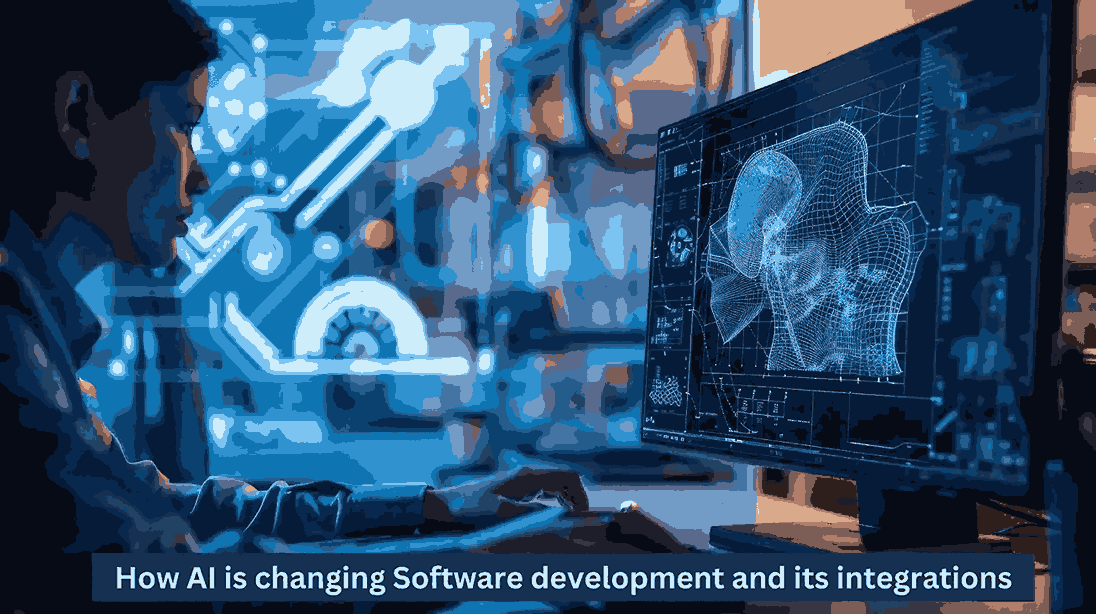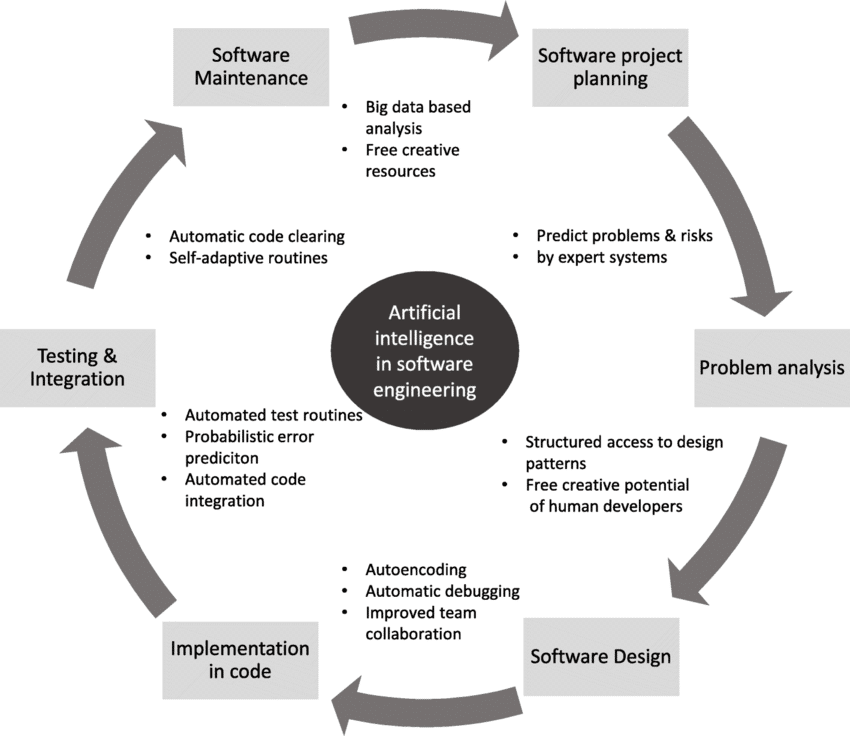How AI is changing Software development and its integrations?

AI is revolutionizing software development by automating tasks, enhancing efficiency, and enabling seamless integration. From AI-driven coding to cybersecurity, its impact is vast. This article explores key AI trends and innovations shaping the industry.
Understanding AI in Software Development
AI encompasses powerful technologies that automate processes previously requiring human intervention. Today, AI is deeply integrated into software development, automating repetitive tasks, enhancing decision-making, and improving software quality. AI-powered algorithms now handle massive datasets, enabling faster and more accurate insights.
Incorporating AI in Software Engineering
AI-driven tools are streamlining software engineering by automating code testing, project planning, and debugging. Traditional testing is time-consuming and error-prone, but AI-based testing tools generate test cases, identify vulnerabilities, and reduce debugging time.
The Role of AI in Software Design

AI enhances user experiences by creating intelligent, personalized interfaces. AI-powered chatbots analyze user input, comprehend natural language, and provide accurate responses, enhancing engagement and satisfaction. Generative AI tools are now assisting developers in designing visually appealing and user-friendly interfaces.
Custom AI Software Development Solution For Enterprises
Latest AI Trends in Software Development
1. Generative AI in Coding
- Tools like OpenAI’s ChatGPT, Google’s Bard, and GitHub Copilot assist in writing, debugging, and optimizing code.
- AI-powered code generation reduces development time and minimizes errors.
2. Low-Code & No-Code AI Platforms
- AI-driven platforms allow non-developers to build applications with minimal coding.
- These platforms democratize software development and accelerate deployment.
3. AI in Cybersecurity
- AI enhances security by detecting vulnerabilities and potential threats in real time.
- Machine learning models identify anomalies and prevent cyberattacks before they occur.
4. AI in DevOps & Automation
- AI automates continuous integration/continuous deployment (CI/CD) pipelines.
- Automated infrastructure management improves efficiency and reduces downtime.
Real-World Case Studies
- GitHub Copilot: AI-powered code assistant streamlining software development.
- Salesforce AI CRM: Uses AI-driven insights for customer relationship management.
- Google’s AI Software Tools: AI-driven APIs enhance various applications.
Also Read: Discover more actionable insights on AI-powered CRMs here!
AI-Assisted Software Development
AI-powered tools improve developers’ productivity by suggesting real-time code enhancements. Predictive algorithms analyze repositories, detect patterns, and recommend improvements. AI helps reduce development bottlenecks, allowing teams to focus on innovation.
AI Software Development Services
AI-driven software services offer comprehensive solutions for businesses, from AI consulting to machine learning-powered applications. Leading AI service providers help companies integrate AI efficiently into their development workflows.
Future of AI in Software Development
As AI technologies evolve, developers will rely more on AI for smarter and more intuitive applications. The integration of AI in software development will drive hyper-automation, improving user experience and operational efficiency. Future advancements, such as AI-powered autonomous coding agents, will further streamline development processes.
Ethical Considerations in AI Development
- Bias in AI models: Addressing fairness and inclusivity in AI-powered applications.
- AI regulations: The growing need for responsible AI development and governance.
- Human-AI collaboration: Balancing automation with human oversight to maintain ethical standards.
Also read: AI Integration: Transforming the Future of Software Development
Conclusion
AI is reshaping software development, enabling faster innovation, enhancing security, and improving efficiency. From AI-assisted coding and cybersecurity to intelligent automation, AI will continue to be a key driver in modern software development. Businesses and developers must stay updated with AI advancements to leverage its full potential and remain competitive in today’s fast-evolving technological landscape.









